Atma
Atma.io, a venture by Avery Dennison, is a connected product cloud platform designed to bridge the physical and digital asset worlds by assigning unique digital identities to everyday items. The Atma platform enables end-to-end supply chain transparency via the Hedera blockchain, allowing businesses and consumers to track products from source to point of sale and beyond. It accomplishes this through the use of identification technologies such as RFID and QR codes to capture and manage vast amounts of data about individual product journeys.
A crucial component of Atma.io's architecture is its use of the Hedera Hashgraph distributed ledger technology (DLT) to ensure the immutability and verifiability of supply chain events and sustainability credentials. This provides a trusted layer for product authentication and helps combat counterfeiting.
Serving a multitude of industries, including apparel, retail, food and beverage, and pharmaceuticals, Atma.io offers solutions for enhanced inventory management, improved operational efficiency, and deeper consumer engagement. It can be utilized to share verifiable product origin stories, provide detailed sustainability information, and support circular economy initiatives.
Project Information
Related Projects

Uphold is a versatile global digital money platform offering a "anything-to-anything" trading experience that connects cryptocurrencies, fiat money, and precious metals to the digital marketplace. Uphold serves as a crucial access point for the Hedera ecosystem, allowing users to buy, sell, and hold HBAR through its simple interface while facilitating on-chain deposits and withdrawals.
Uphold's platform highlights the exchange’s transparency, publishing its assets and liabilities in real-time and maintaining a 100-percent plus reserve policy, ensuring user funds are fully backed.
Beyond basic trading, Uphold offers features including recurring buy orders for dollar-cost averaging and staking rewards on various digital assets, including HBAR. Its "Vault" feature provides enhanced self-custody options for HBAR holders and secure private key management with assisted replacement.
Uphold is also holds over 50 licenses and registrations globally, including compliance with FinCEN in the US, the FCA in the UK, and FINTRAC in Canada. They adhere to stringent anti-money launder (AML) and know-your-customer (KYC) procedures.

HashGuild is an inclusive NFT infrastructure project built on Hedera Hashgraph, serving as both a marketplace and launchpad that allows creators and collectors to mint, buy, sell, and earn rewards on Hedera-based NFTs. It emphasizes community-driven development, users can propose and vote on features, and aims to provide accessible tooling and governance-enabled services tailored to the needs of Hedera’s NFT ecosystem.
Versal is a comprehensive digital asset platform providing a suite of vertically integrated tools for businesses to build and scale payment solutions using cryptocurrency. The platform is designed to bridge traditional finance with the digital asset economy, offering modular products that enable companies to manage operations, store assets, and create modern payment flows. Its core offerings include Payments, Vault, Network, and Tokenization services.
The Versal Payments module allows businesses to easily accept and disburse digital asset payments across more than 30 blockchain networks. It provides conversion-optimized checkout experiences, invoicing solutions, and e-commerce plugins. Versal Vault is a digital asset custody solution for developers, supporting both MPC and multi-sig security methods to mass deploy and manage non-custodial wallets. The Versal Network facilitates compliant fund transfers between licensed financial entities, while Versal Tokenization allows for the creation and management of new digital assets.
As a multi-chain platform, Versal supports a wide array of networks, including Hedera. This integration means that businesses using Versal’s infrastructure can offer their customers payment and payout options using HBAR and other Hedera-based tokens.

KPAY is a fintech company that provides a comprehensive suite of payment processing and financial management solutions for businesses. Its core service is its unified pay-in and pay-out platform. For pay-ins, the company offers a range of solutions, including smart point-of-sale (POS) terminals, QR code payments, and online payment gateways that support a wide variety of payment methods. For pay-outs, KPAY provides a business account with features for managing expenses, paying bills, and making international remittances.
KPAY's platform is a comprehensive financial and operational hub for merchants. The pay-in solutions are a key product, featuring Smart POS Terminals that accept over 12 major payment methods, including credit cards, mobile wallets, and QR code payments. This ensures a smooth checkout experience for customers.
For business operations, the KPay Business Account enables merchants to manage all their expenses in one place. This includes end-to-end bill payment, payroll management, and fast, affordable international remittances in multiple currencies. The platform also offers a suite of over 100 operational tools, such as industry-specific POS system integrations, CRM and loyalty systems, and data-driven financing solutions to help businesses grow.
